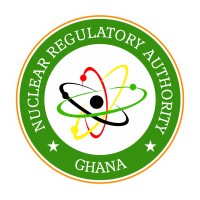
Sponsor: Nuclear Regulatory Authority, Ghana
Period of Consultations: Thu July 03, 2025 to Fri June 27, 2025 The safe,
secure, and peaceful use of nuclear materials and radioactive materials is of
greatest importance to national interest, public health, environmental
protection, and international obligations. This is because nuclear activities ought
to be conducted safely and securely, to
protect the people, the environment and properties from the harmful
effects of radiation hazards, whilst enjoying its benefits.
It is a core mandate of the Nuclear Regulatory
Authority to develop
regulations that licensees must meet to obtain or retain a license or
certificate to use nuclear materials or operate a nuclear facility. These draft
regulations provide specific guidance and implementation details for the
broader regulatory framework outlined in the Nuclear Regulatory Authority Act,
895 of 2015. These regulations ensure consistent and effective enforcement of
safety, security, and other standards related to nuclear activities.
This Integrated Management Systems for Facilities and Activities Involving
Ionizing Radiation Regulations aim to establish a framework for ensuring the
safe and effective use of such radiation. They outline requirements for
establishing, implementing, assessing, and improving a management system,
focusing on risk management, emergency preparedness and response, and ongoing
monitoring and evaluation.
Integrated Management Systems (IMS) are highly relevant for facilities and activities involving ionizing radiation because they provide a comprehensive and structured approach to managing all aspects of radiation safety, security, and regulatory compliance. By integrating various management systems, an IMS ensures that radiation safety considerations are not treated in isolation but are intertwined with other critical areas like quality, environment, and health.
Key Provisions / Thematic Areas
Key provisions:
1. Ensure
that radiation safety is considered throughout the lifecycle of nuclear or
radiological facilities and activities, from design and construction to
operation, maintenance, and decommissioning.
2. Helps
licensees meet the regulatory requirements for radiation safety, including
those set by the International Atomic Energy Agency (IAEA).
3. Integrate
radiation safety with other management systems like quality management systems
(ISO 9001), environmental management systems (ISO 14001), and occupational
health and safety management systems (ISO 45001), ensuring a holistic approach.
4. Facilitate
better communication, coordination, and decision-making, leading to improved
overall performance in radiation safety.
5. Foster
a strong safety culture within the organization by emphasizing the importance
of radiation safety and promoting continuous improvement.
6. Penalties
for flouting any of the provisions of these Regulations.
7. Appeals
may be made in accordance with the procedures provided in the Nuclear
Regulatory Authority Act, 2015.
Comments
Who Can Comment?
All interested parties (relevant organisations,
co-regulators, business groups, professional bodies, Unions, religious
organizations, Civil Society Organisations, environmental policy advocates,
international partners and so on) are invited to review the draft regulations
and submit comments, suggestions, or concerns during this time.
Structure of Comments:
In your
comments, please add:
Title: Please state the title of
the draft regulation you wish to comment on.
Introduction: Explain
why you are interested in the draft regulation, stating whether you are
commenting on your own behalf, on behalf of your organization or another
organisation, or are endorsing the comment of another. Also add any experiences
or credentials that makes your comments different from that of others.
Background: Clearly identify the
relevant part of the draft regulation you are commenting on. State the issues
within the draft regulation on which you are commenting and list your
recommendations. If you are commenting on a particular word or phrase, or if
you are responding to specific questions or requests for data, state this
clearly and provide the relevant page number, column, and paragraph in the
draft regulation.
Analysis: Please state your detailed
argument and evidence to support your recommendations.
Conclusion: Summarise your main
argument and lists your recommendations again.
Submitting Comments:
Comments may be submitted through any of the following methods:
- Email: reviewcom@nra.gov.gh with the email subject header “Reviewcom_Title of Regulation_Your Full Name_Organisation”
- Mail (if applicable): P. O. Box AE 50, Atomic Energy, Kwabenya.
- In-person (if applicable): Houses Nos. 1 & 2, Neutron Avenue, Nuclear Regulatory Authority; Mondays-Fridays, 8:30am – 4:30pm
- Public Participation: Details to be announced later.
Thank you for your participation in this important process.
Key documents to download
How to respond
This Consultation is Closed
Email to:
Write to:
Nuclear Regulatory Authority, Houses Nos. 1 & 2, Neutron Avenue, P. O. Box AE 50, Atomic Energy, Kwabenya


 Loading. Please wait....
Loading. Please wait....